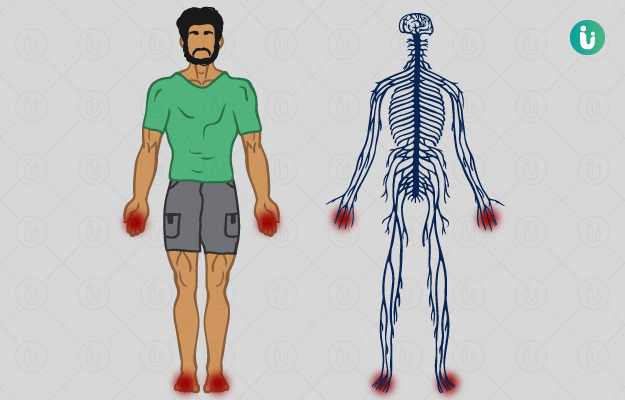Neuritis is the medical term used to describe inflammation in the nerves - it is usually accompanied by excruciating pain. If the inflammation is in one nerve, then it is called mononeuritis and if the inflammation is in the mesh (plexus) of nerves, then it is called plexitis.
There is one other condition where several single nerves get inflamed, this condition is medically called mononeuritis multiplex.
When the nerves which are widely separate from each other get inflamed, that condition is known as polyneuritis.
The common types of neuritis are optic neuritis, brachial neuritis, vestibular neuritis, cranial neuritis and lumbar neuritis.
Neuritis is sometimes mistaken for neuropathy, however, neuropathy is the damage to the nerves outside the brain and the spinal cord. Long-term undiagnosed and untreated neuritis can lead to neuropathy. (Read more: Neuropathic pain symptoms, causes, medicines, remedies)

 OTC Medicines for Neuritis
OTC Medicines for Neuritis









































